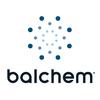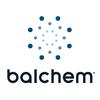
Content sponsored by:
Balchem Animal Nutrition
Harness the Power of Niacin with Precision Release Niacin
Published: June 15, 2022
Source : Glen Aines, Balchem Animal Nutrition
NiaShure is rumen-protected to shield the niacin from microbial degradation in the rumen while allowing release further down the digestive tract.
Research shows that as much as 95% of raw niacin is broken down in the rumen. Balchem’s proprietary encapsulation process ensures that NiaShure reliably delivers significantly more niacin to the intestinal tract than raw niacin.

Niacin – Powerful Nutrition
Niacin is a highly bio-active compound and often referred to as vitamin B3. It is primarily involved in energy metabolism, helping convert feed into energy.
Niacin is important for the development and function of cells throughout the body. As a water-soluble vitamin, niacin can not be stored in the body, so it must be provided on a daily basis. In humans, niacin is supplemented to help lower cholesterol, ease arthritis and boost brain function. In dairy cattle, niacin is included in rations to help reduce the impact of heat stress and to mitigate ketosis in severely overweight or problem cows.
NiaShure’s Impact in Your Herd
Summer heat stress can cause decreased milk production and reduced reproductive performance in dairy cattle.
Heat stress is known to reduce dry matter intake and feed efficiency. It is associated with higher incidence of infectious diseases such as mastitis due to a lowered immune response. Heat stress affects every segment of the cow’s
Reduce Heat Stress
Through Vasodilation
Niacin is proven to cause vasodilation in many animal species. Vasodilation means that the blood vessels expand and carry more blood to the skin surface. Vasodilation is a way for the animal to lose body heat and maintain normal body temperature. The animal can transfer heat from the body core to the skin surface. In cattle, vasodilation is accompanied by an increased sweating rate, which helps further cool the body. Two trials from the University of Arizona have demonstrated how supplemental NiaShure can help the dairy cow better cope with a heat stress challenge.
How Niashure Works
•Increases Peripheral Circulation Feeding NiaShure increases blood flow to the skin, allowing the skin to dissipate heat.
•Increases Sweating Much like in humans, by increasing the ability for cows to sweat, body temperature is reduced (Figure 2).
•Shown to Reduce Core Body Temperature by 0,5°C compared to control cows during periods of peak thermal loads (Figure 3)
Through Cellular Stabilization
The University of Arizona investigated niacin’s role in heat stress reduction at the cellular level. Dairy cows produce heat shock proteins (HSP) in response to a heat stress challenge. HSPs protect cells from damage by assisting in the refolding of proteins located in the cytoplasm that have been damaged by heat. Several types of HSP can be found in cells and their levels increase in response to prostaglandins.
Research shows that niacin increases the production of prostaglandin D (PGD) and also suggests that niacin could increase HSP production by increasing PGD production. Researchers at the University of Arizona (Collier et al., 2006) had earlier reported that PGD and prostaglandin A (PGA) increased the production of a specific HSP (HSP 70) in bovine mammary epithelial cells after eight hours at 42°C. This increase in HSP was associated with improved cell viability when temperatures were elevated during culturing (Figure 4).
Though more work needs to be done to understand the importance of heat shock proteins, initial studies indicate that cows fed niacin had increased levels of heat shock proteins.

Mitigate Ketosis
For severely fat or problematic cows it may be necessary to reduce blood NEFA levels pre-partum by lowering the amount of fat mobilized from body stores to help mitigate fat accumulation in the liver and the incidence of ketosis. Niacin is widely recognized as a potent anti-lipolytic agent capable of reducing the surge in NEFA seen prior to parturition (Figure 5). Niacin acts on fat cells to reduce the amount of lipid being mobilized, leading to lower prepartum blood NEFA levels. Niacin is generally not recommended for use as an anti-lipolytic postpartum, because the cow requires NEFA and ketones as essential energy sources for lactation. Without NEFA mobilization during early lactation, cows would be even more dependent on glucose to meet their energy needs and milk yields will suffer.
How Niashure Works
•Reduce NEFA Surge
Niacin acts on fat cells to reduce the amount of lipid being mobilized leading to lower prepartum blood NEFA levels.

Harness the Power
Heat stress and metabolic disorders are some of the most costly issues your dairy can face. St-Pierre et al. found that, based on very conservative $ 0,29/kg milk prices, researchers estimated annual losses of $897 million, or almost $100 per cow, for the U.S. dairy industry due to heat stress when traditional heat abatement strategies were used. That number jumped to $1,5 billion, or $167 per dairy cow without heat abatement systems.
Recent research from Dr. Geoff Dahl’s lab at the University of Florida also shows the multi-generational impact of heat stress on the in utero calf, leading to three generations of reduced milk production and overall animal productivity.
NiaShure is the most cost-effective way to deliver niacin to your cows.
•Niacin is a biologically powerful compound proven to help reduce the impact of heat stress by increasing peripheral blood circulation and sweating rates in cattle.
•Niacin is also a potent anti-lipolytic agent that is shown to reduce fat mobilization and NEFA generation to support health in over-conditioned cows as they transition to the milking string.
Related topics:
Authors:
Recommend
Comment
Share

Would you like to discuss another topic? Create a new post to engage with experts in the community.




